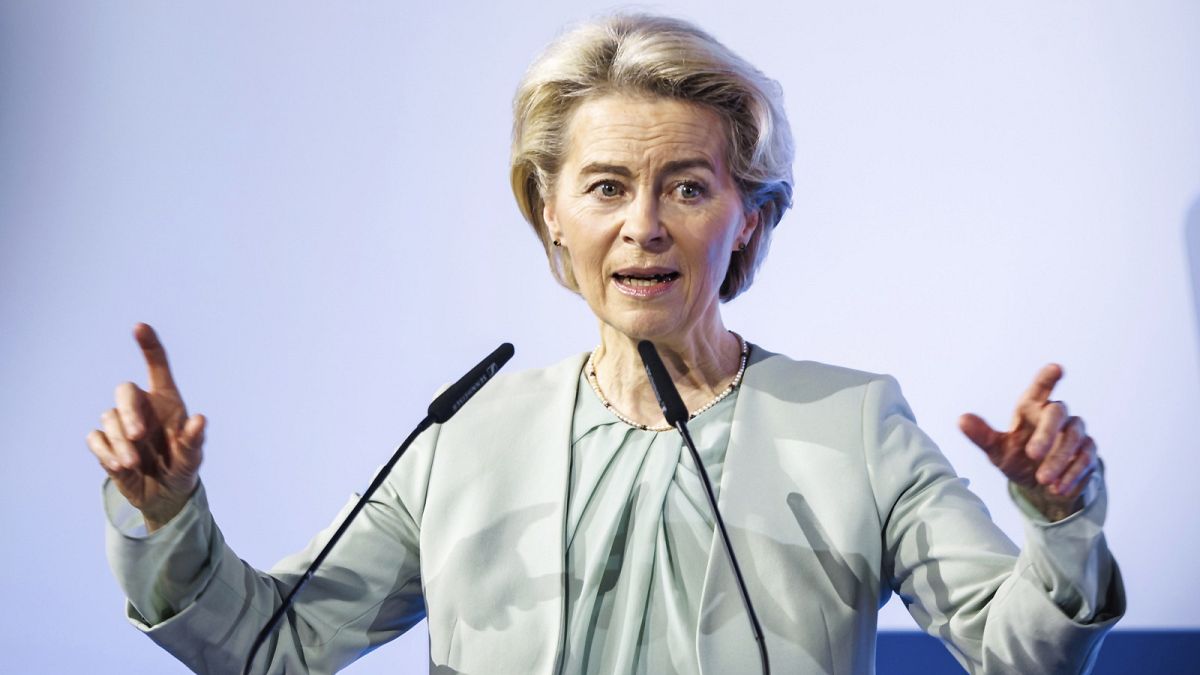Vladimir Putin's "blackmail" attempts only served to speed up the European Union's green transition, Ursula von der Leyen said on Tuesday.
Before the Russian leader decided to launch the full-scale invasion of Ukraine, the bloc was highly dependent on the import of Russian fossil fuels, particularly gas, which it received at a low price via an extensive network of pipelines.
But the war forced member states to drastically cut off Russian fuels from their energy system through a combination of sanctions (oil and coal) and national initiatives (gas) aimed at depriving the Kremlin of an important source of revenues.
"Two years ago (...) one in five units of energy consumed in the European Union came from Russian fossil fuels. Today, it is one in twenty," Ursula von der Leyen, the president of the European Commission, said on Tuesday during a visit to Paris to celebrate the 50th anniversary of the International Energy Agency (EAA).
"We got more energy overall from renewables in the European Union than from Russia. And last year, in 2023, for the first time ever, we produced more electricity from wind and sun than from gas," she went on.
"So, Putin's attempt to blackmail our Union has utterly failed. On the contrary, he really pushed the green transition."
Von der Leyen noted that, despite the efforts made in the wake of the 2022 energy crisis, the global pace of the transition was "still too slow" and urged governments worldwide to ramp up renewable capacity, mobilise "massive" amounts of investment, and work together to secure raw materials and promote innovation.
"The old fossil fuel economy is all about dependencies. The new clean energy economy is all about inter-dependencies," she said.
The road ahead is still long: according to the latest numbers provided by the Commission, the EU's dependency rate on Russian gas fell from 45% in 2021 to 15% in 2023, meaning consumption has greatly decreased but not vanished entirely.
The fact that Europeans continue to willingly purchase Russian gas, either through pipelines in Central Europe or LNG terminals in France, Belgium and Spain, has caused persistent friction among member states, some of which want the bloc to adopt a legally binding import ban as it was done to exclude Russian seaborne oil and coal.
On Monday, the Austrian government admitted the country's dependency rate on Russian gas had risen from 76% in November to 98% in December, the highest figure since the start of the invasion. Energy Minister Leonore Gewessler blamed the situation on a contract signed between OMV, Austria's leading energy company, with Gazprom, Russia's state-owned monopoly, that runs until 2040.
"The market and the energy companies that are part of it are not fulfilling their responsibility to reduce the dependency on Russian gas sufficiently," Gewessler said. "The diversification of our gas imports is advancing far too slowly."
